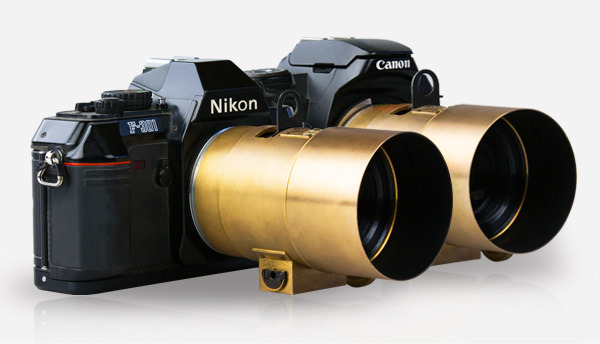Some companies have taken to using Kickstarter as almost a default step in their product pipeline, and New York’s Lomography is one of them. The photography focused company has successfully Kickstarted its film scanner for iPhone, and now it’s looking to fund a throwback portrait lens for DSLRs based on the historic “Petzval” 19th century design.
The Petzval lens was the most popular choice for photos in the 19th century, and produces a unique bokeh (background blur) effect with a very narrow depth of field. They’re pretty recognizable once you see some samples taken with them, and the effect is very impressive when paired with the sensors and imaging capabilities of modern DSLRs.
Lomography’s version would retain the signature visual style but also offer up mounts for Canon EF- and Nikon F-compatible cameras, along with a very bring f/2.2 maximum aperture, which beats the classic Petzval’s by at least a full stop. It also has terrific color saturation and high contrast, according to Lomography, and is very sharp in the in-focus area. Vignetting is also intentionally quite noticeable with the Petzval, for an art-house effect.
 The Petzval is unique in its design in terms of being intentionally made to capture a super narrow depth-of-field, which is a key ingredient for portrait photos that really pop. And as an awesome bonus just from an aesthetic standpoint, the new Lomography Petzval will be crafted from brass, just like the original.
The Petzval is unique in its design in terms of being intentionally made to capture a super narrow depth-of-field, which is a key ingredient for portrait photos that really pop. And as an awesome bonus just from an aesthetic standpoint, the new Lomography Petzval will be crafted from brass, just like the original.
Lomography has been making lenses and throwback lo-fi cameras for over a decade now, and the Petzval is ambitious but definitely within their scope. The campaign is seeking $100,000, and has over half of that pledged already. Pre-order backer levels start at $300, though few are left at that price, and there are backer levels at $350, $400 and up after that.
The trend of companies like Lomography that are established using Kickstarter as a way to poll interest for potential products, while also creating a pre-order channel and defraying some of the risk of building something new is great for consumers, since it pairs trusted brands with an innovation platform. Kickstarter gets a lot of flack for projects that don’t deliver as promised, but it could end up being much more successful on this scale, with medium-sized companies looking for wider audiences, than as a money vacuum for early adopters who are loose with their wallets.